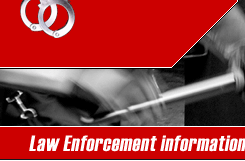DUI implies driving under the Influence and DWI means driving while intoxicated. These are violations under the Florida law and a person found to be violating DUI or DWI laws can be arrested and penalized under the Driving Under the Influence of Alcoholic Beverages, Chemical Substances or Controlled Substances Law s. 316.193, F.S.
A person is said to be under the influence of alcohol if he/she has blood or breath alcohol content of more than 0.08 (grams of alcohol per 100 milliliters of blood or grams of alcohol per 210 liters of breath).As per the Florida law, every person operating a motor vehicle gives an "implied consent" to take a chemical breath test when suspected of drunk driving by an official.
There could be blood tests and urine tests also for determining the levels of alcohol in blood and urine. Refusal to take these tests would result in confiscation of the driving license for a year. Second or subsequent refusals would result in suspension for 18 months.
In case of commercial vehicles, the person is disqualified from operating a commercial motor vehicle for 1 year for first refusal. Second or subsequent refusal would mean permanent disqualification.Driving license revocation periods for DUI are given under s. 322.271, F.
S. and s. 322.28,F.S.
Under this, the minimum revocation period for a first conviction is 180 days while the maximum revocation period is 1 year. Second conviction within 5 years invites a revocation period of a minimum of 5 years though the person may be eligible for hardship reinstatement after a year. For second offenders, it is a minimum of 180 days and a maximum of 1 year.For third convictions within 10 years, the minimum revocation period is 10 years with a possibility for hardship reinstatement after 2 years. For third offenders, it is a minimum of 180 days and a maximum of 1 year. For those having one conviction more than 10 years prior and one within 5 years, revocation period is a minimum of 5 years though they may be eligible for hardship reinstatement after a year.
For fourth convictions (regardless of prior convictions) and murder with motor vehicle, the license is permanently revoked and there is no option for hardship reinstatement. DUI manslaughter also invites permanent revocation. However, the person may be eligible for hardship reinstatement after 5 years if there are no prior DUI convictions. For manslaughter, DUI serious bodily injury, or vehicular homicide convictions, a minimum 3-year revocation is given.Alcohol related conviction / disqualification for commercial motor vehicles (CMV) are given under s.
322.61, F.S. In these cases, convicted persons are disqualified from operating CMVs for a period of one year (apart from provisions of s.
316.193 for DUI convictions). Second or subsequent convictions would result in permanent disqualification of operating a CMV. There are no provisions for hardship reinstatements.
There are also different kinds of convictions for Business Purposes Only/Employment Purposes Only Reinstatements under s. 322.271, F.S.
and s. 322.28, F.
S.Driving while the license is suspended or revoked under DUI is guilty of 3rd degree felony if it results in death or serious injury to another person by driving in a careless and negligent manner. The person is punishable by imprisonment for a maximum period of 5 years, a maximum fine of $5000 or both.
.Florida DUI Attorneys provides detailed information about Florida DUI attorneys, Florida alcohol treatments, Florida DUI and fines, and more. Florida DUI Attorneys is affiliated with Los Angeles County DUI Lawyers.
By: Josh Riverside


